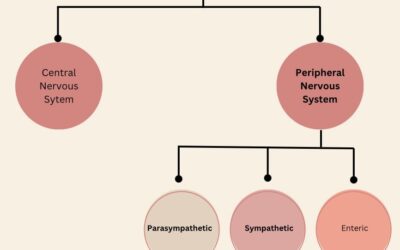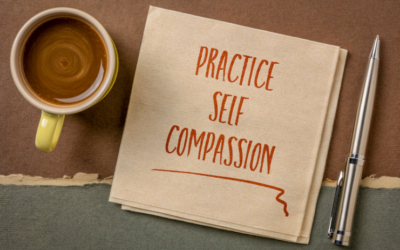Home » Blog
Orchard Mental Health Group Blog
Hello! Welcome to OMHG’s new blog!
We are so happy that you are here and hope that you will join us each week.
My name is Dr. Pamela Lubing. I am a licensed psychologist and one of the Clinical Directors at Orchard Mental Health. I have been a part of the practice since 2016. I primarily work with children and adolescents, but work with all age groups. I approach my work with patients from a relational, attachment style, while also teaching cognitive behavioral techniques.
For more wellness content, follow us!
The Key to Finding Your Tribe
In this short 1.5-minute video, we talk about the importance of having a sense of community, as well as describe three ways you can find it.
Tips to De-Stress After Work
In this 1.5-minute video, we offer simple tips for de-stressing after work, which can be crucial for overall mental health.
Self Care Tips
In this quick, 1.5-minute video, we offer three self-care tips to help improve your mood and everyday life.
Letting Go
In therapy, letting go refers to the emotional or mental release of personal attachments, people, places or things that are holding us back or weighing us down.
Taylor Swift: Empowering Girls Through Music
Taylor Swift, the beloved country star turned global icon, has captured the hearts of millions of fans, especially among young girls and teens.
Adjust Your Crown: 3 Beyonce Hits to Lift Your Mood and Confidence
As women, we face numerous challenges while traversing through life. Oftentimes, societal expectations can impact our self-perception significantly. We are expected to maintain a certain appearance, speak in a particular manner, dress in ways that please others, and so on. This pressure can often lead to losing our identity and feeling hollow. Luckily, there is a prominent figure in our culture who has openly discussed facing similar struggles. She is known as Queen B, the Queen, or simply Beyonce.
Mindful Lyrics: Exploring Hip Hop’s Therapeutic Effects
In an era of unparalleled connectivity through the internet, social challenges are amplified, leading to unrealistic standards and expectations. In such a landscape, providing an outlet for expression that offers an avenue for young people to connect with others authentically and discover their true selves is crucial.
Anxiety “Unmasked”— Tools for a Stress-Free Mind
Anxiety has the potential to disrupt your everyday routines. Recognizing the signs and causes of anxiety can assist in managing it effectively.
Embracing Presence
What exactly is ‘presence’? It’s a simple yet profound concept. Presence is about embracing the here and now.
Using the 5-Point Scale for Emotions Expression and Management
When emotions are high and coping skills have flown from memory, what is a person to do? Use the trusty five point scale, that’s what! A simple five point scale can be an invaluable tool at home for the whole family, as well as at school for kids!
Social Media Misdiagnosis
Many teens and young adults are using social media to search for videos about mental health diagnoses, typically relating to some of the symptoms or stereotypical experiences of the content creator. This, ultimately, leads people to identify with the content creator’s diagnosis. One parent stated, “if [her daughter] sees a hint of herself in someone, she thinks she has it, too.”
The Strength of Spirituality
Although religion and spirituality have been synonymous throughout history, in the last couple of decades spirituality has detached itself as a separate entity and therefore can sometimes be overlooked.
Avoidance of Pain
As human beings, our survival instincts lead us to avoid pain. While it makes sense to avoid pain in the sense that touching fire would hurt and burn us, we have begun to apply avoiding pain too broadly.
Understanding Microaggressions as a White Person
The term racial microaggression is defined as “brief, everyday exchanges that send denigrating messages to people of color because they belong to a racial minority group” (Sue et al, 2007).
The Act of Appreciation
As we step into the Holiday season — a season marked by warmth, giving, and the promise of a new year — let us reflect on the profound value of appreciation.
What is Acceptance and Commitment Therapy?
Acceptance and Commitment Therapy, called ACT (said like the word “act” rather than A-C-T) is a type of therapy that was created by Steven C. Hayes. It is deemed the “cousin” of Cognitive Behavioral Therapy (CBT) because it has some similar underpinnings to CBT in that it incorporates both cognitive and behavioral aspects, but looks at behavior and cognitions through a different lens. ACT also finds inspiration through Buddhist teachings.
A Sense of Mattering
In the intricate web of existence, amid the challenges and uncertainties, the concept of mattering shines brightly. Mattering is the profound recognition that our lives are intertwined with each other and more connected than we think.
Grief and the Holidays
While the holidays may bring celebration and joy, they can also be a difficult time for others, especially those who are in the midst of grief.
Models of Disability
A model of disability means a way of conceptualizing disabilities. While there are many models of disability, there are three main models of disability that are used today. These include the Medical Model, Functional Model, and Social Model.
Will My Therapist Send Me to the Hospital?
Therapists do not want to send you to the hospital; however, if going to the emergency room is going to keep you safe then they need to make that call.
Practicing Social Skills with Children
Social skills are very important for a child’s development. Strong social skills assist a child in developing strong language skills, creativity, social intelligence, and confidence, but social skills are tough!
Living With an Invisible Illness
October is Invisible Illness Awareness Month. In honor of this, let’s dive into what invisible illness means and work to understand how it impacts one’s lived experience.
Therapy and Medication Combination
Medication and therapy both help people relieve and manage psychological wellbeing. There are many reasons why a person may choose to only use medication or only participate in therapy
Understanding Loneliness
Loneliness, as described and explained, by Dr. Jeremy Nobel (2023) is defined as the uncomfortable feeling of a perceived gap between the connections we want with others and the connections we feel we have. He categorizes loneliness into: psychological loneliness, societal loneliness and existential lonelines
Understanding Postpartum Diagnoses
While perinatal mental health issues can start during pregnancy, postpartum is an especially sensitive time for emotional wellbeing.
September — National Recovery Month
In 1989, September became National Recovery Month as a way to bring attention to finding evidenced-based practices for helping individuals heal from addiction.
Expanding What We Think of as Trauma
This article may be triggering to some as it gives examples of trauma and discusses trauma and PTSD.
Understanding the Therapeutic Relationship
We have relationships with many people over the course of our lives. However, there is a uniqueness to the relationship we have with our therapists.
What is Mental Load and How Does it Affect Mental Health?
It can be overwhelming to be in charge of the mental load and not get credit for it because people only see the execution phase. Did your partner grill an amazing dinner for your neighbors this weekend? Amazing!
Getting Older: Memory Loss and Cognitive Concerns
If you, a family member, or a loved one believes that significant memory and cognitive concerns are present, it is best to talk with your PCP.
Exercise and Mental Health
Particularly if you are working through depression and anxiety, physical activity can play a large role in helping to manage your symptoms.
Men and Masculinity
It’s up to us to instill a broader view of what being a man means in our culture, across all racial, sexual, and other social identities, so that we can create a healthier view of masculinity.
Supporting a Loved One with Depression and Anxiety
Loving someone who is struggling can be hard. Make sure you have your own support system and are taking good care of yourself.
What exactly is ADHD?
Attention-Deficit/Hyperactivity Disorder (ADHD) is a neurodevelopmental disorder that is most often diagnosed in childhood (symptoms must be present prior to age twelve) and can persist into adulthood.
Coping with Chronic Illness
While most people can see some of the more surface level difficulties of having a chronic illness, those are just the tip of the iceberg.
How to Understand Your Psychological Evaluation Results and Recommendations
Although some individuals may feel like receiving a diagnosis means that there is something “wrong” with them, this is simply untrue. An evaluation can be beneficial in understanding specific concerns or differentiating between diagnoses; however, an evaluation can also highlight an individual’s strengths and abilities.
How to Get the Most Out of Therapy
So, how do you get the most out of your therapeutic experience during and after you’ve connected with a therapist? Here are four things you can do to make sure you are getting the most from your experience.
Understanding Grief
Because loss is to be expected, it is important to acknowledge and identify grief and its many faces. The popularized belief follows a five-stage model of grief.
Intuitive Eating: Changing Your Relationship With Food and Body Image
Intuitive eating has many benefits including higher self-esteem, well-being, optimism, body appreciation and acceptance, as well as psychological hardiness, life satisfaction, and many more.
What is a Psychological Evaluation?
If you are a parent or an adult wondering if you have some sort of neurodivergence, a psychological evaluation might be able to help you find answers.
True Relaxation
There are a few different ways we can tap into our parasympathetic nervous system. Practicing present focus without judgment, otherwise known as mindfulness, is a great way to regulate your nervous system.
Practicing Self-Compassion
As you practice saying these things to yourself, focus on the feelings of comfort and soothing that arise. Sometimes, you may experience sadness or longing to hear this from others at the same time.
Using Values to Make Choices
Values are what makes life meaningful and our values can motivate and help us make choices. Values, as I mean here, are not “goals”, instead they are guiding principles.
Welcome to Our Blog
Each week we will work to provide relevant psychology information, including but not limited to, applying psychology to current events, understanding mental health diagnoses, utilizing psychology practices in everyday life, and more!
Karina Tuohy, Psy.D.
Licensed Psychologist
Individual Therapy
Family Therapy
Virtual Visits
Children (6-12)
Adolescents (13-18)
Adults (18+)
Specializes in working with individuals who have experienced trauma
Candice Tyson, LGPC
Licensed Gradutate Professional Counselor
Individual Therapy
Virtual Visits
Adolescents (13-18)
Adults (18+)
Older Adults (65+)
Specializes in working with LGBTQ+ communities
John Volpe, LCPC, NCC
Licensed Clinical Professional Counselor, Board Approved Clinical Supervisor, Director of Therapy Training
Individual Therapy
Family Therapy
Virtual Visits
Children (6-12)
Adolescents (13-18)
Adults (18+)
Julia Williams, LMSW
Licensed Master Social Worker
Individual Therapy
Virtual Visits
Adults (18+)
Specializes in behavioral health
Ziyu "Winnie" Wu, LGPC
Licensed Gradutate Professional Counselor
Individual Therapy
Family Therapy
Couples Therapy
Group Therapy
Virtual Visits
Children (6-12)
Adolescents (13-18)
Adults (18+)
Older Adults (65+)
我会说普通话!
In crisis or need immediate help?
Call 988 or go to your nearest ER.
Services
Adolescent Psychotherapy
Adult Psychotherapy
Assessments & Evaluation
Child Psychotherapy
Cognitive Behavioral Therapy
Couples Therapy
Family Therapy & Parent Coaching
Genetic Testing
Group Therapy
Medication Management
Play Therapy
Single-Session Therapy
Teletherapy
Orchard Mental Health Group
Accepted Insurance*
Aetna
Carefirst / Blue Cross Blue Shield
Cigna
Humana / Tricare
Johns Hopkins Health Plans
Medicaid
Medicare
Optum / UnitedHealthcare
*Varies by service
Partner Resources
Contact Us
M-F, 9am-5pm Eastern Time
Phone: 240-750-6467
Fax: 240-912-7835
contact@orchardmentalhealth.com
9707 Key West Avenue, Suite #100 Rockville, MD 20850































































